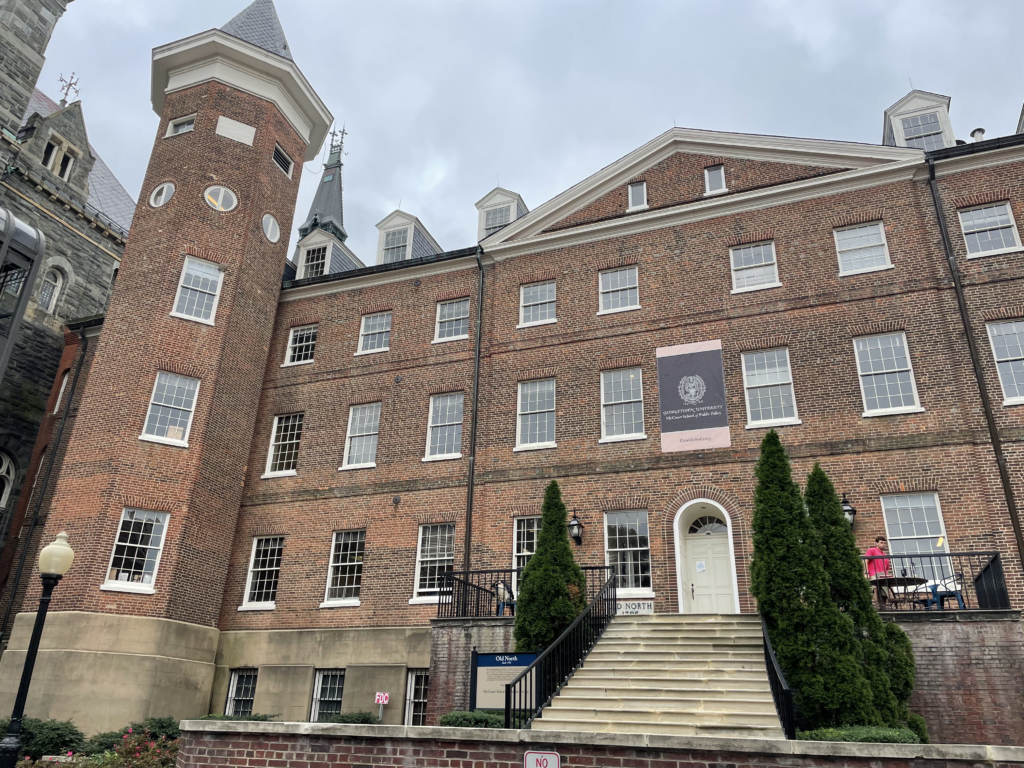Median earnings depend on factors beyond level of education, and in some fields higher education does not lead to higher earnings, a new Georgetown University report found.
The Georgetown University Center on Education and the Workforce (CEW), a research institute affiliated with the McCourt School of Public Policy, released the report “The College Payoff: More Education Doesn’t Always Mean More Earnings,” on Oct. 7, which evaluated the correlation between education attainment level and median earnings.

The report found that 16% of workers with high school diplomas and 28% of workers with associate’s degrees amass more than half the lifetime earnings than those of workers with a bachelor’s degree. Additionally, 36% of holders of bachelor’s degrees earn more than half of workers with a master’s degree.
Higher education is not always the best option for students after high school, according to Ban Cheah, a research professor at CEW and one of the report’s authors.
“In a high-paying occupation or high-paying field, an associate’s degree can allow you to earn more than a median bachelor’s degree holder,” Cheah said in a phone call with The Hoya. “The college and postgrad path is not the path for everyone.”
The research was conducted through a large survey of people across the United States, pulling from 11 years of data, according to Cheah.
“We just calculate the median earnings for each group of people,” Cheah said. “The drawback of this approach is that there isn’t really a real earning trajectory for people.”
While lifetime earnings are often greater for those with a higher level of education, there are clear exceptions to this trend, according to the report.
“[O]ne quarter of workers with a bachelor’s degree earn more than half of workers with master’s or doctoral degrees,” the report reads.
In addition to differences among fields, median earnings depend significantly on field of study, location, race, ethnicity and gender, and gaps persist between different groups, the report found. Women with a bachelor’s degree have median lifetime earnings of $2.4 million, compared to $3.3 million for men. While white workers with bachelor’s degrees earn a median of $2.9 million, Black and Latinx workers each only earn $2.3 million.
The results of the study should be used to allow students to make better choices about their educational futures, according to Emma Wenzinger, one of the report’s authors and the Strategic Communications Specialist at CEW.
“This kind of information is very useful to the general public, young people looking at colleges and people later on in their careers looking at going back to school,” Wenzinger said in a phone interview with The Hoya.
The issue with lower earnings despite higher education comes from a lack of awareness among students regarding their educational options early in life, according to Cheah.
“This is one of the reports that many high school counselors use,” Cheah said. “But they also use it in a pretty simplistic way in that going to college does pay off for a lot of students even though it might not for everyone.”
For instance, the research found that a professional degree in architecture and engineering occupations, such as a master’s of architecture, yields no higher earnings than a bachelor’s degree in those fields. However, a professional degree in health practice occupations yields more than twice as much in median lifetime earnings as a bachelor’s degree.
High school guidance counseling often does not educate students about all of their post-graduation options, making them feel pressured to enter college and pursue degrees even if it is not the best path for them, according to Cheah.
“Counseling in its current state is just too narrowly focused,” Cheah said. “They are too eager to get their kids down the pipeline.”
Students should be made aware of other options because college can be costly, according to Wenzinger.
“We think this data is important because earnings are certainly a big factor because college is a big investment,” Wenzinger said. “So it is just one piece of the puzzle but it is an important piece for college students to consider.”




















